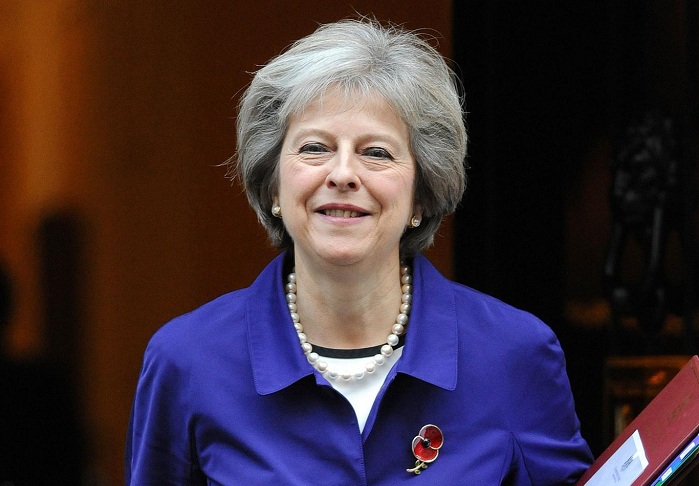Of course, the opinion polls are set fair for the Government, with the Conservatives basking in a 20-plus-point lead over Labour and May personally enjoying an even larger margin over Corbyn. Why risk an election otherwise? Nor is it entirely fair to brand the timing cynically opportunistic. May’s central argument was to look two years ahead and see an incipient UK election campaign brushing up against the final months of Brexit bargaining, and see a liability in the making. That rationale is persuasive.
Is it persuasive enough, though, to produce that combination of larger majority and personal mandate the Prime Minister is banking on? The Government will certainly know how to exploit the advantages of incumbency. Even before her announcement; May had secured the services of election strategist, Sir Lynton Crosby. She then drew her red line on the matter of televised debates, while creating an impression of momentum by helicoptering off to her first – non-metropolitan – campaign rally.
May also insists, with a confidence out of all proportion to the referendum result, that the election will be about leadership, competence and her “red, white and blue” Brexit. If, as it appears, the Conservatives intend to play the patriot card, and anyone who dissents risks being tarred and feathered for betraying the national interest, those warnings about a dirty campaign look prescient.
Could it be, though, that May is overplaying her hand, and that the slim, if clear, majority for Leave, could come back to haunt her? Last weekend, it was disconcerting to hear the combined might of UK punditry describing the majority in Turkey as “wafer-thin”, without the slightest acknowledgement that the margin in our own referendum was hardly overwhelming.
Nor is it entirely clear on what basis May claims that “the people” are “coming together” over Brexit. At least some of the “48 per cent” are not reconciled with the result at all, still less with the “hard” Brexit they detect in gestation. Will they not look for some way to convert their parliamentary vote into a Remain vote? Gina Miller – who successfully went to court to force a parliamentary vote on Article 50 – is now leading a drive for tactical voting. Her determination and ingenuity are not to be underestimated.
Even then, it would be easy to object that the arithmetics for a May defeat simply cannot be made to add up. The combination of our first-past-the-post system, the number of safe Conservative – and pro-Brexit – constituencies, the evisceration of Labour in Scotland, and disenchantment with Labour in the north of England all militate in favour of a comfortable Conservative majority.
Look more closely, though, and the Conservatives might not be invincible. How happy are voters really to be summoned to a national poll for the third year in a row, and barely a month after local elections? If the Liberal Democrats made Europe their cause, could they win back the MPs they lost, thanks to Crosby’s ruthless targeting of their seats two years ago? Could they win more?
Does Ukip pose the same danger to Labour’s heartland as it did in 2015 and 2016? And if not, would those who defected to Ukip now switch to the Tories? Maybe, but maybe not. And if the Lib Dems gained and Labour stems its losses, might the Conservatives find themselves without an overall majority? Pro-Europe LibDems could hardly form a new coalition with the Conservatives. But what about with Labour?
Ah yes, Labour. Much is made by those with loud voices, such as Blairite MPs and the mainstream media, of the supposed hopelessness of Jeremy Corbyn, at almost anything, but especially leadership. The point is also made about Labour’s divisions over Europe – divisions until recently largely obscured by the deeper, angrier cleavage on the Tory side. Of these, Labour’s divisions on Europe are the more debilitating going into this election.
Why? Because Corbyn is a natural and life-long campaigner. Some of those at his London rally noted that he seemed more cheerful and at ease than he had for months. Leadership, in the sense of management, may not be his forte, but he has no problem commanding a platform. Remember, too, that Labour membership in the country at large is at a record level, and includes many young voters. At these new grassroots, it is, of course, a different Labour from the New Labour that won three elections. But it is a Labour that reflects the experience of three failed wars and the banking crisis and the failure to bring those responsible for any of these national catastrophes to account. Corbyn’s talk about the system being “rigged” has resonance.
As the surprise showing of the leftist candidate in France has shown, and that of Bernie Sanders in the US before him, there is a new following for what looks rather like old, ideological, socialism – Corbyn’s socialism, as it happens. Whether he can hijack the electoral agenda away from Theresa May’s brand of patriotic Brexit and towards the policies he was starting to formulate, predicated on old ideas of social justice, is a question. But the battle between the two could be what this election comes to be about.
And if, just if, the polls were wrong (it does happen), and the Prime Minister failed to increase her majority or even suffered defeat, what then? Would that bring Brexit back into play? How does the will of the people as expressed in a referendum stack up against the will of the people as expressed in a parliamentary vote? Could the referendum be rerun? Dream on, you will say. But this is a general election – another – and the campaign is yet young.
/The Independent/
More about: #TheresaMay #Generalelection2017
















































